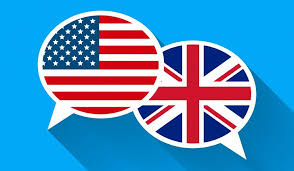來源于《圖書和藝術(shù)》版塊
Johnson
約翰遜語言專欄
Ill-gotten gains
不正當(dāng)來源
How America saved old-fashioned English grammar
美國(guó)是如何拯救老式英語語法的
Is America ruining English or giving it new life? Most of this old transatlantic debate concerns words. Is elevator an improvement on lift? Why say transportation when transport will do? Sometimes it involves spelling, specifically the American reforms that made British centre into American center. Pragmatic change or dumbing down? And, of course, the quickest way to tell a Yank from a Brit is by pronunciation.
美國(guó)是在毀滅英語還是賦予英語新的生命?大多數(shù)大西洋兩岸的舊爭(zhēng)論都是關(guān)于語言的。Elevator 是對(duì) lift 的改進(jìn)嗎?既然有 transport 就能做名詞,為什么還要有 transportation 呢?有時(shí)還涉及到拼寫,這就不得不提到美國(guó)人把英式英語里的 centre 變成了美式英語里的 center。務(wù)實(shí)的改變還是簡(jiǎn)化?當(dāng)然,區(qū)分美國(guó)人和英國(guó)人最快的方法是通過發(fā)音。
But the differences between British and American English go beyond words, sounds and spelling to grammar itself. Here they can be subtle, but they are many: the index of the “Cambridge Grammar of the English Language” mentions regional differences in 95 places. America being the parvenu, most people assume that any variations between the two countries result from American innovation, to the (sometimes mock) horror of Britons. In reality, America has often been the conservative one, and Britain the innovator. When British speakers borrow American habits, they are sometimes unwittingly readopting an older version of their language.
但是英式英語和美式英語之間的區(qū)別不僅僅是單詞、發(fā)音和拼寫,而是語法本身。在這里,它們可能是細(xì)微的,但它們是很多的:《劍橋英語語法》的索引提到了95個(gè)地方的地區(qū)差異。美國(guó)是暴發(fā)戶,大多數(shù)人認(rèn)為兩國(guó)之間的任何差異都源于美國(guó)的創(chuàng)新,這讓英國(guó)人感到恐懼(有時(shí)是嘲笑)。事實(shí)上,美國(guó)常常是保守的一方,而英國(guó)則是創(chuàng)新的一方。當(dāng)說英式英語的人借用美國(guó)人的習(xí)慣時(shí),他們有時(shí)會(huì)無意中重新使用一種較舊的英語。

Take the past participle of get, which in Britain is got and in America gotten. To some Britons, American gotten is a cute or irritating invention. In fact, it is the older form, which came from Old Norse. “Gotten” appears in a Bible translation of 1535: “Treasures that are wickedly gotten, profit nothinge.” It persisted for centuries before fusing with the past tense, got, in Britain. Not that America was entirely conservative; it has a got too. But Americans use it differently: “He’s got a car” means he owns one, while “He’s gotten a car” means he has acquired one.
以get的過去分詞為例,在英國(guó)是got,在美國(guó)是gotten。對(duì)一些英國(guó)人來說,美式英語是一個(gè)可愛或令人討厭的發(fā)明。事實(shí)上,它是更古老的形式,來自古斯堪的納維亞語。“Gotten”一詞出現(xiàn)在1535年的圣經(jīng)譯文中:“Treasures that are wickedly gotten, profit nothinge(不懷好意得到的財(cái)寶,毫無益處).”它持續(xù)了幾個(gè)世紀(jì),直到在英國(guó)與過去時(shí)態(tài)“got”融合。并不是說美國(guó)完全保守;美式英語中也有一個(gè)got。但是美國(guó)人的用法不同:“He’s got a car”意思是他有一輛車,而“He’s gotten a car”意思是他得到了一輛車。
譯文由可可原創(chuàng),僅供學(xué)習(xí)交流使用,未經(jīng)許可請(qǐng)勿轉(zhuǎn)載。












